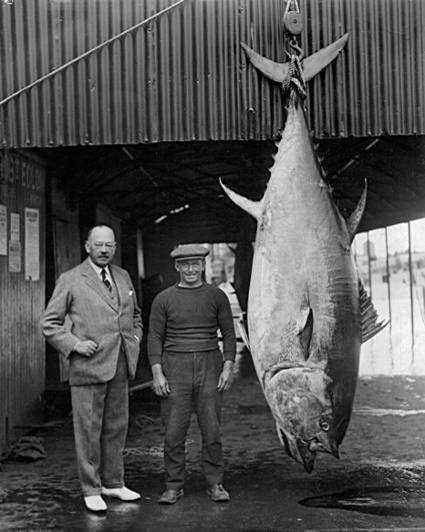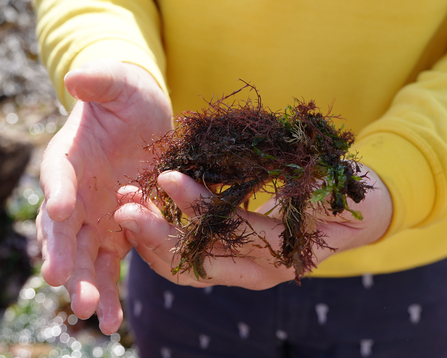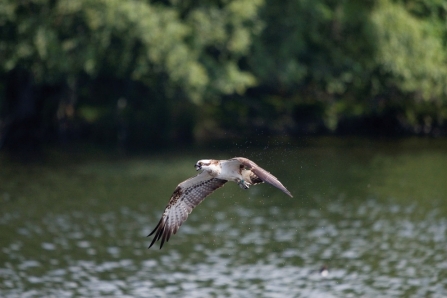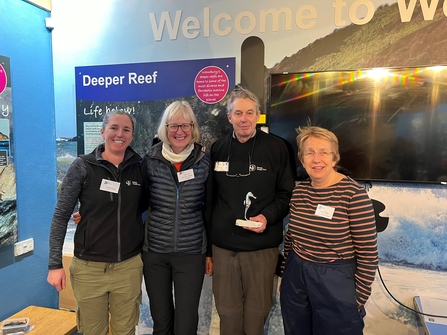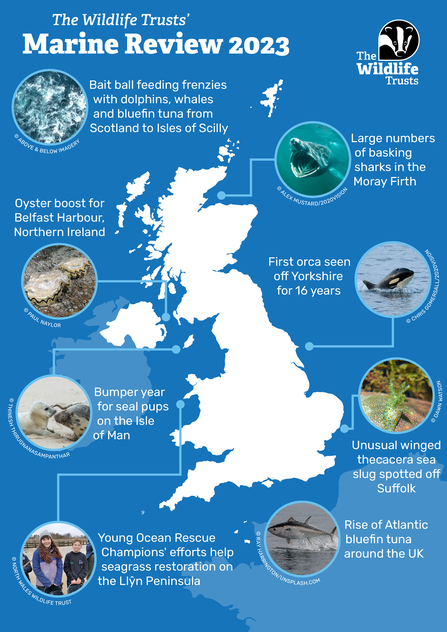The Wildlife Trusts’ annual round-up of life in UK seas presents tales of hope and heartache through spectacular encounters, conservation successes and challenges for marine and coastal wildlife. The highs and lows for 2023 include:
- Bait ball feeding frenzies dominated by Atlantic bluefin tuna, humpback and fin whales
- First ever Highly Protected Marine Areas designated in the UK
- Danger from human disturbance, pollution and avian flu
Wildlife enthusiasts were treated to a bumper year for Risso’s dolphins in the South West, including in the Wembury Voluntary Marine Conservation Area. There were multiple reports of super-pod feeding frenzies off south-west England, with common dolphins and fin whales joining in.
A rise in sightings of Atlantic bluefin tuna, fin whales and humpback whales could be a sign that these species are recovering. There were multiple reports of bait ball feeding frenzies involving whales, dolphin, and tuna – from Scotland to Scilly. A bait ball is formed when a predator forces fish to group together into a dense ball – then gannets, cetaceans and tuna dive in to feed, creating a ‘boiling’ sea of activity.
Dr Lissa Batey, Head of Marine Conservation at The Wildlife Trusts, witnessed this phenomenon off the Devon coast. She says:
“I went on a family dolphin-watching trip and spotted large numbers of diving gannets. We sailed nearer and as we approached the water appeared to be ‘boiling’ with activity. An extraordinary number of dolphins appeared all around us feeding on a giant fish bait ball below. Bluefin tuna began to leap high out of the water in the middle of the turmoil. Suddenly fin whales appeared and blew high columns in the air before lunging beneath to gorge on the fish. It was an incredibly exciting spectacle and one that I’ve heard other people have enjoyed off the UK coast this summer.”

